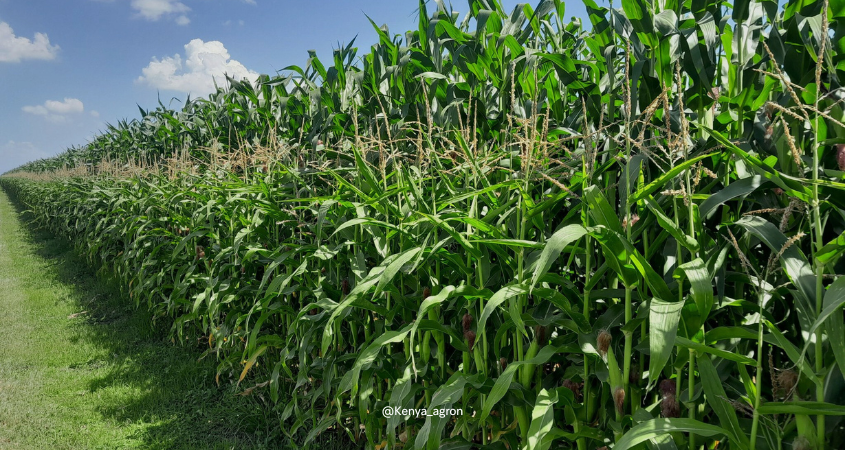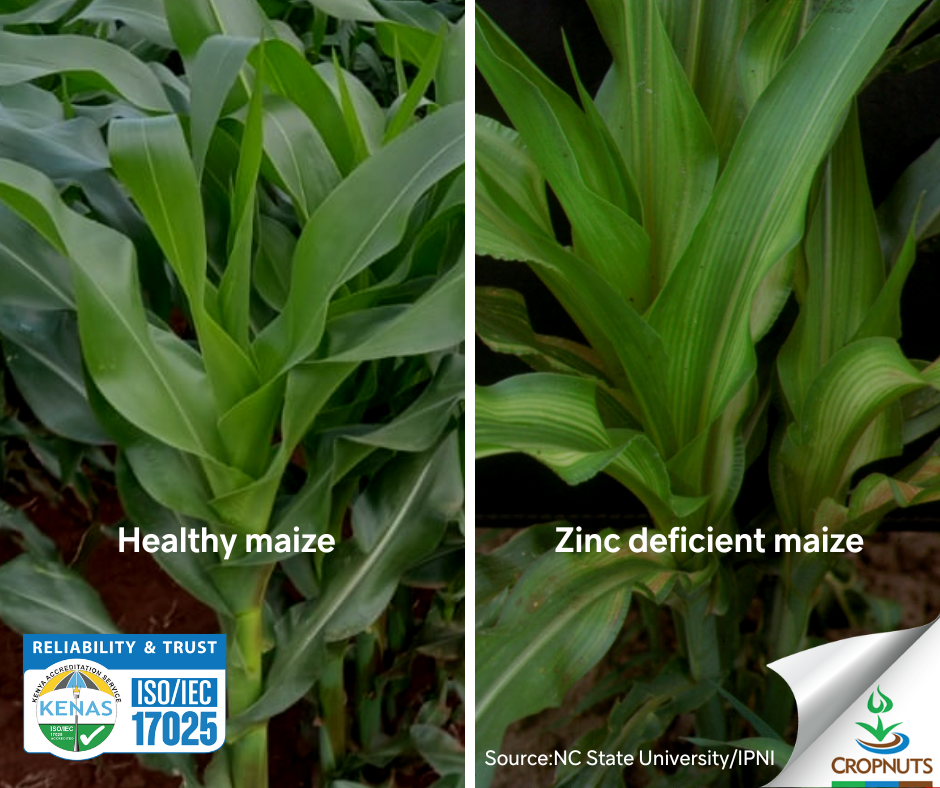
Zinc (Zn) is a vital micronutrient that plays a crucial role in plant growth and development. Although required in small amounts, zinc is essential for many physiological functions in plants and significantly impacts both crop yield and quality. Let’s explore the importance of zinc in plant nutrition and how to manage it effectively for optimal crop production:
Zinc is fundamental for enzyme function and is involved in several key plant processes, including protein synthesis, growth regulation, and hormone production. It plays a significant role in the formation of chlorophyll and carbohydrates and supports the development of root systems and seed production. Adequate zinc levels are essential for healthy plant growth and maximizing crop productivity.
Maize is particularly sensitive to low zinc levels. Zinc deficiency in maize typically manifests on young leaves as interveinal striping, often appearing as whitish bands. Affected plants tend to be stunted with shortened internodes, leading to a rosette or bushy appearance. Early detection and correction of zinc deficiency are crucial to prevent yield losses and ensure healthy crop development.

Zinc availability in soils is influenced by several factors, including soil pH, organic matter content, and soil texture. High soil pH (alkaline conditions) and sandy soils with low organic matter content can reduce zinc availability to plants. Compacted soils, poor drainage, and cool, wet soil conditions can also restrict root growth and zinc uptake.
Regular soil testing is essential to monitor zinc levels and guide fertilization practices. Applying zinc sulfate or zinc chelates directly to the soil or as a foliar spray can effectively address deficiencies. Incorporating organic matter, such as compost or manure, can increase zinc availability by improving soil structure and microbial activity. Maintaining an optimal soil pH (slightly acidic to neutral) can further enhance zinc solubility and uptake by plants.
In conclusion, understanding and managing zinc nutrition is vital for healthy crops and high yields. By regularly monitoring soil zinc levels with soil testing and implementing best management practices, farmers and agronomists can ensure that their crops receive the zinc they need for robust growth and productivity. For personalized guidance on managing zinc and safeguarding yield, feel free to contact our experts at support@cropnuts.com.
Grow more with less
#savesoil #soilhealth #soilscience #plantnutrition #zinc
Order our services and get to know how to improve your soil for better yeilds.